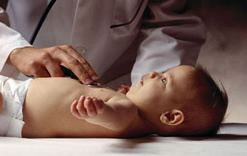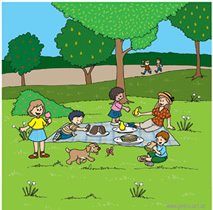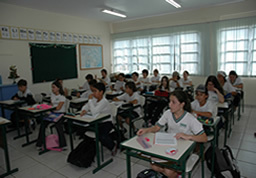The reality in Brazil has always been one of discrimination with regard to the rights of children and adolescents.
In the nineteenth century only children from the wealthier classes went to school, but even so it was very difficult to keep them studying due to the difficulties of the time, such as distance and separation from the family.
In the 20th century, the first schools for the poorest appeared, due to the progress of industry and the need for qualified labor. At that time, children were subjected to heavy work in mines and factories, with a workload so heavy that it reached thirteen hours a day, like adults. At that time, learning time began to be valued due to industrialization, and adolescence came to be considered a phase of life. The child came to be seen as a subject of rights.
At the end of the 20th century, with the constitution of 1988, in its article 227; the Federal Government launched the Child and Adolescent Statute, a set of laws with the objective of defending the rights of the little ones.
Here are some parts of it:
In Chapter I of the Statute, the Right to Life and the Right to Health are emphasized, it is specified that a pregnant woman must receive medical and dental care from the State, in addition to nutritional support. In addition, you must have adequate conditions to be able to breastfeed. The baby must receive care from a pediatrician, receive emergency medical assistance, when necessary, and treatment with vaccines.

"Right to Life and Right to Health"
The Right to Freedom is provided for in Chapter II of the Statute, both children and adolescents have the right to come and go. To travel without the presence of parents, they must have authorization from the respective court. As for religion, children and adolescents have the right to make a choice. In addition, you have the right to play, play sports and have fun. Adolescents have the right to vote.
Do not stop now... There's more after the advertising ;)
In the other chapters of the Statute of the Child and Adolescent, we highlight some parts that we consider important, such as: right to protection from inhuman treatment and violent, freedom of expression, being raised and educated by the family, receiving an education in a public school close to home, being respected in their cultural values and artistic.
For the disabled, there is an article where it is highlighted that they must receive special medical and educational treatment, in order to meet their needs and difficulties.
Work for children under the age of fourteen is strictly prohibited, unless the child or adolescent is an apprentice, since that it does not interfere with their study schedule, that it is not in places that provide them with any kind of danger or that are harmful to their health. Night work is prohibited.

"Right to public school near your home"
It is expressly prohibited by the Statute, the sale of weapons and explosives to children and adolescents, as well as the sale of alcoholic beverages, game tickets and lottery.
In cases of teenagers or children with social problems, who transgress the laws, being violators of them; these must be hospitalized in a suitable place to be treated responsibly. They will be able to receive visits, education and sports practices in order to help them get well educated and get back to socializing with their family.
But whoever thinks that the Statute only presents the Rights of Children and Adolescents is mistaken. In it we can find the Obligations that they must fulfill, such as: obeying their parents, respecting their elders, preserving the environment in which they live and studying to have a better world.
By Jussara de Barros
Graduated in Pedagogy
Would you like to reference this text in a school or academic work? Look:
BARROS, Jussara de. "Child and Adolescent Statute"; Brazil School. Available in: https://brasilescola.uol.com.br/dia-das-criancas/estatuto-crianca-adolescente.htm. Accessed on June 27, 2021.



